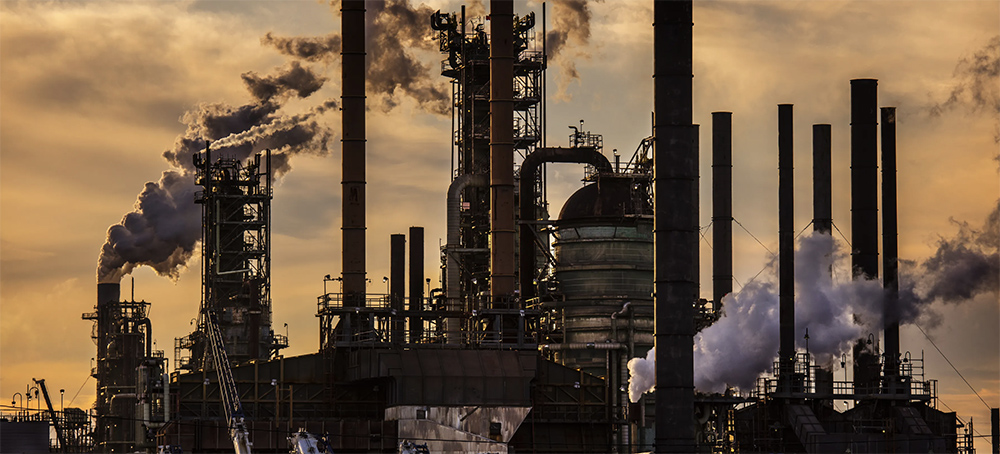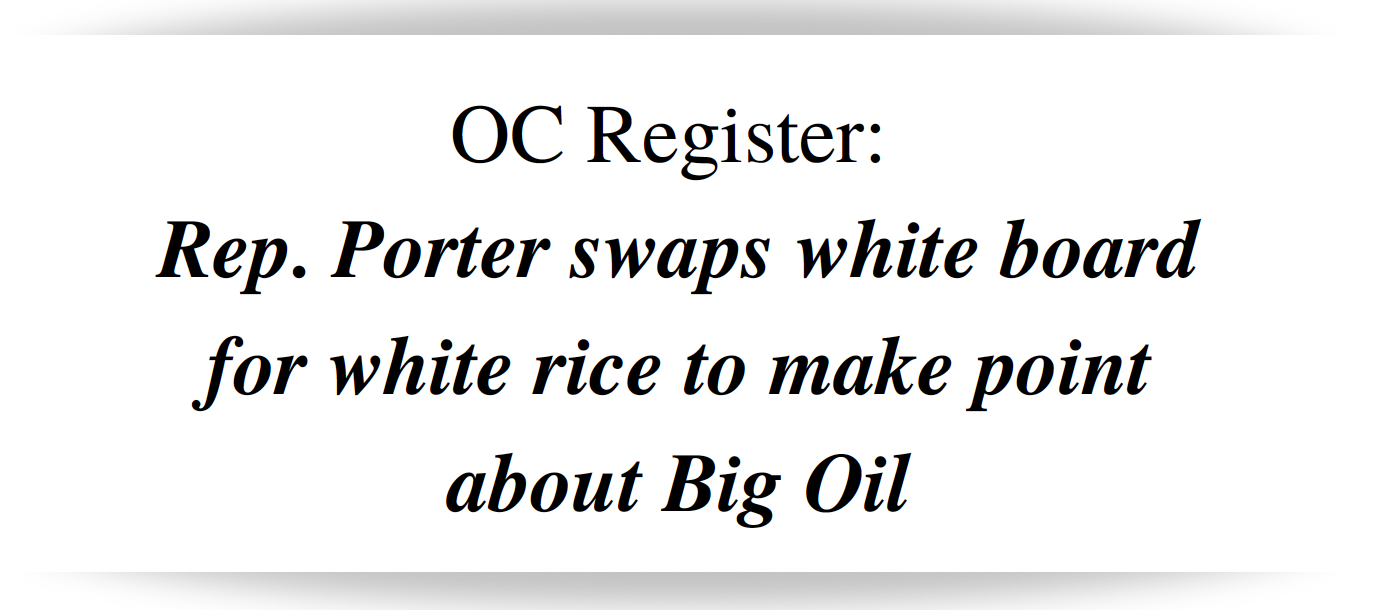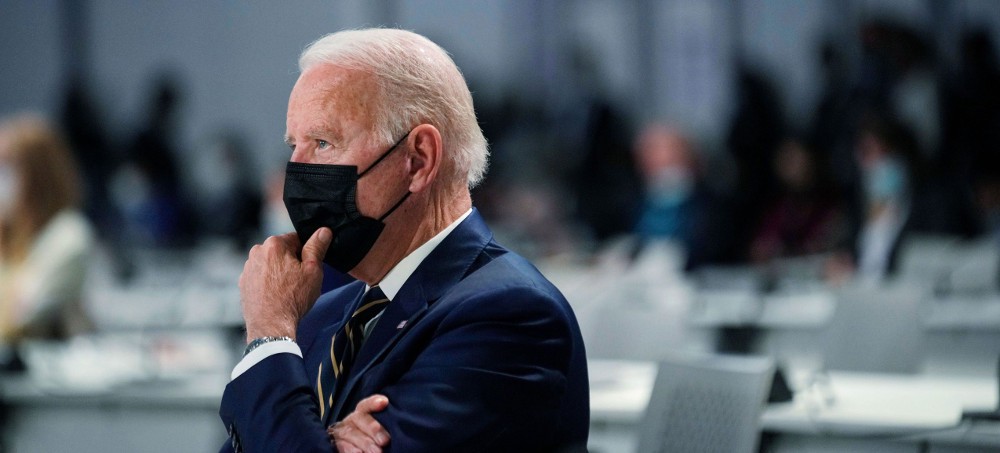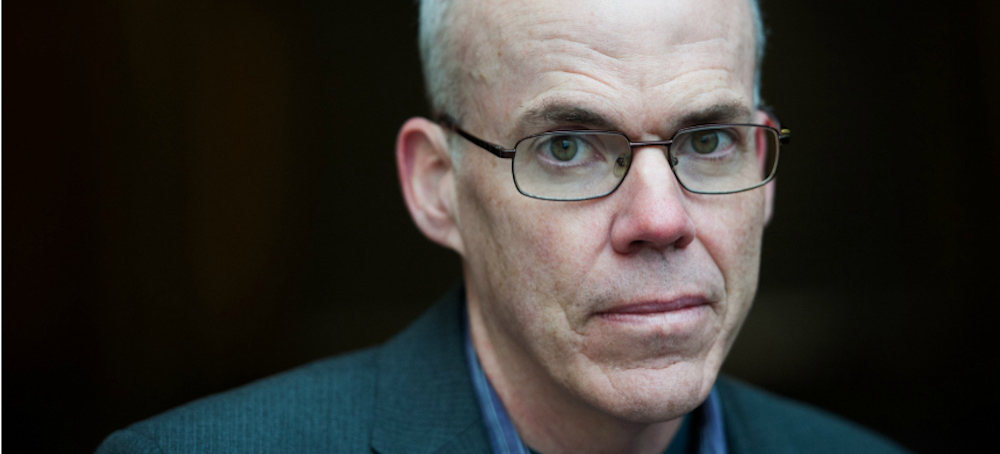Transcript
This is a rush transcript. Copy may not be in its final form.
AMY GOODMAN: We begin today’s show in Glasgow at the United Nations climate summit. At the opening ceremony on Monday, United Nations Secretary-General António Guterres urged world leaders to do more to address the climate emergency.
SECRETARY-GENERAL ANTÓNIO GUTERRES: The six years since the Paris Climate Agreement have been the six hottest years on record. Our addiction to fossil fuels is pushing humanity to the brink. We face a stark choice: Either we stop it, or it stops us. And it’s time to say, “Enough.” Enough of brutalizing biodiversity. Enough of killing ourselves with carbon. Enough of treating nature like a toilet. Enough of burning and drilling and mining our way deeper. We are digging our own graves.
AMY GOODMAN: Over 120 world leaders are attending a two-day World Leaders Summit as part of the climate summit. This is Barbados Prime Minister Mia Mottley.
PRIME MINISTER MIA MOTTLEY: Failure to provide the critical finance and that of loss and damage is measured, my friends, in lives and livelihoods in our communities. This is immoral, and it is unjust. If Glasgow is to deliver on the promises of Paris, it must close these three gaps. So I ask to you: What must we say to our people living on the frontline in the Caribbean, in Africa, in Latin America, in the Pacific, when both ambition and, regrettably, some of the needed faces at Glasgow are not present? What excuse should we give for the failure? In the words of that Caribbean icon Eddy Grant, “will they mourn us on the frontline?” When will we, as world leaders across the world, address the pressing issues that are truly causing our people angst and worry, whether it is climate or whether it is vaccines?
AMY GOODMAN: A number of countries have made new pledges to address the climate crisis. India has vowed to reduce its carbon emissions to net zero by 2070. Over a hundred leaders have agreed to end deforestation by 2030. And the United States is announcing a new plan today to reduce methane emissions. On Monday, President Biden addressed the U.N. climate summit.
PRESIDENT JOE BIDEN: Climate change is already ravaging the world. We’ve heard from many speakers. It’s not hypothetical. It’s not a hypothetical threat. It’s destroying people’s lives and livelihoods, and doing it every single day. It’s costing our nations trillions of dollars. Record heat and drought are fueling more widespread and more intense wildfires in some places and crop failures in others. Record flooding and what used to be a once-in-a-century storms are now happening every few years. In the past few months, the United States has experienced all of this, and every region in the world can tell similar stories. And in an age where this pandemic has made so painfully clear that no nation can wall itself off from borderless threats, we know that none of us can escape the worse that’s yet to come if we fail to seize this moment.
AMY GOODMAN: On Monday, yes, President Biden addressed the U.N. climate summit. He later apologized for the United States pulling out of the Paris Climate Agreement when President Trump was in office.
While Biden repeatedly vowed to address the climate crisis, his climate agenda was dealt a major setback back in Washington, D.C., when Democratic Senator Joe Manchin of West Virginia criticized the slimmed-down $1.75 trillion Build Back Plan to address the climate crisis and to expand the nation’s social safety net. The plan will only pass the Senate if Manchin and Arizona Senator Kyrsten Sinema come around to support it. It was interesting Senator Manchin used Biden’s moment in Glasgow to hold his own news conference in Washington, D.C., to say, well, he’s weighing whether to support the Build Back Better Act.
To talk more about the U.N. climate summit and Biden’s climate agenda, we’re joined by two guests in Glasgow. Tom Goldtooth is executive director of the Indigenous Environmental Network, member of the Diné and Dakota Nations. He lives in Minnesota. Bill McKibben is an author, educator, environmentalist, co-founder of 350.org, his latest book, Falter: Has the Human Game Begun to Play Itself Out? He writes a weekly climate newsletter for The New Yorker.
We welcome you both to Democracy Now! We’re going to begin with Bill McKibben. Both our guests are in Glasgow. Bill, if you can respond to President Biden yesterday, the speech, both what’s happening in Glasgow with the U.N. — with the world leaders, over 120 gathered — this is far different than any other time — and what’s happening back in Washington, D.C., with Senator Manchin trying to steal the headlines?
BILL McKIBBEN: Sure, Amy and Juan. What a pleasure to be with you. And it’s strange not to have you here, I’ve got to say.
Yesterday, the air went out of this conference, I think, pretty much right at the start. The hope was that Joe Biden was going to arrive with some legislative victories that would at least point us in the right direction. He doesn’t. He arrives having approved, more or less, Line 3 and with nothing to show on the other side so far.
You know, the Build Back Plan plan had already been stripped of its most important elements, the enforcement provisions under this clean energy pricing plan, and now it’s not even clear it’s going to pass. The half-trillion dollars in subsidies for renewable energy are being held up by Joe Manchin’s latest hissy fit. Mark my words: Every single delegate from every nation heard Manchin’s quote yesterday about how he wasn’t at all sure he was going to vote for this.
It makes it extremely difficult to proceed when the world’s carbon champion — the country that’s poured more carbon into the atmosphere by far than any other — won’t provide leadership. Yeah, it’s better than Trump pulling out, but I think that, you know, basically, it’s a good thing that people like Tom Goldtooth are here, because this summit is not going to solve our problem. We’re going to be back in the streets in a serious way.
JUAN GONZÁLEZ: And, Bill, I wanted to ask you, first of all, about the Manchin new roadblock once again, because Manchin is really, basically, a stand-in or a puppet for the fossil fuel industry. What does it tell us about the ability of these corporate powers to stymie the majority or democratic action just by being able to capture a few key senators? What does that tell us about the future of action in a — by democratic vote in Congress? And also, what do you make of Biden, on the one hand, making this strong statement in Glasgow, but just a couple of days earlier at the G20 summit, he was urging the industrialized nations to increase oil and gas production temporarily?
BILL McKIBBEN: So, Manchin is the perfect example of how Big Oil works. He’s taken more money than any other senator from the fossil fuel industry. And, you know, there was that sting videotape released a couple of weeks ago where Exxon’s chief lobbyist reported talking to him every week and calling him their “kingmaker.” There was a report yesterday that Manchin spent part of September huddled with all the leading coal barons at a golf resort someplace, where they played a Civil War-themed golf tournament in between speeches. That sounds like a good deal of fun, I’ve got to say.
AMY GOODMAN: Some have said, Bill, that Senator Manchin has to decide whether he wants to be a senator or a lobbyist or maybe a Republican.
BILL McKIBBEN: Clearly, our system allows you to do both at the same time, Amy, and that’s the problem. Look, credit to Biden for getting 48 senators on board with a serious, progressive commitment around climate and other things. And that’s because we’ve built movements, and that’s because Bernie showed that there was a real appetite for this. But 48 isn’t quite enough. And so, I think one way to say it is, movements have gotten big enough and strong enough to force the question, to call the question in Congress, but not quite big enough to carry the question.
That’s why I think, coming out of this COP, those of us from all sorts of places, including Third Act, this new group we’re doing with people over the age of 60, are going to be heavily focused on banks and the finance system. That’s where groups like Indigenous Environmental Network were working 15 years ago, trying to interrupt bank financing for — and we’re going to have to go back there, because there really is a sense here that the political system and the U.N. system are beginning to reach limits. They’re not moving fast enough. They’re not coming close to keeping up with the pace of the devastation.
And so, Greta pretty much captured it: There’s a lot of “blah blah blah.” There is. And some of it’s very noble and very powerful, and the people who are saying it are magnificent. But it’s not adding up to enough. And there’s a sense, as with Manchin, that we spend a lot of time talking to the cashier at the front of the store, when our problem’s with the guy in the back room counting the money. So, I know I’m coming out of Glasgow determined to be taking on the Chases and BlackRocks and whatever of the world just as hard as we can.











